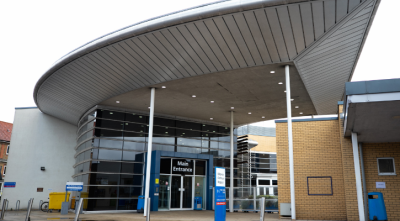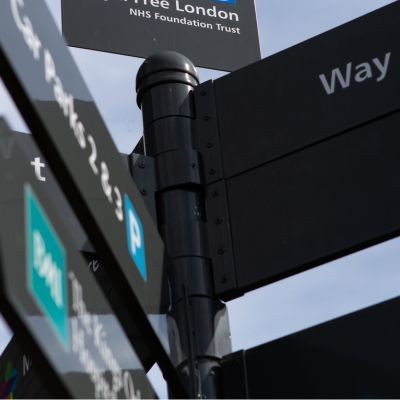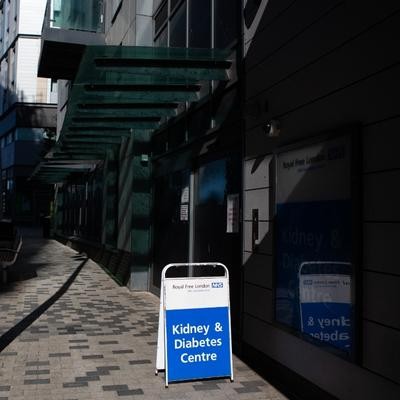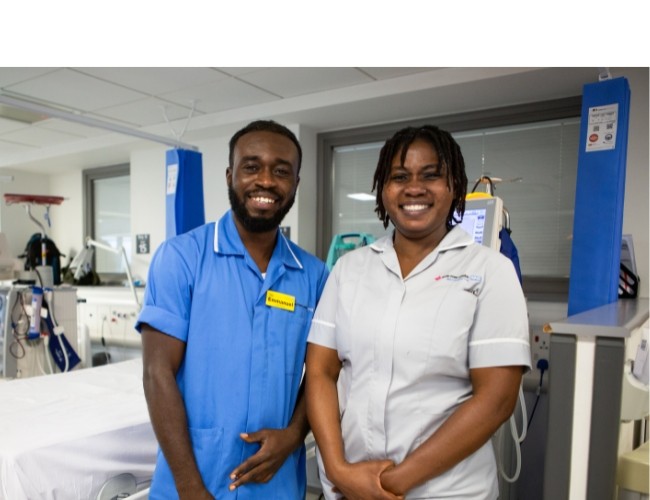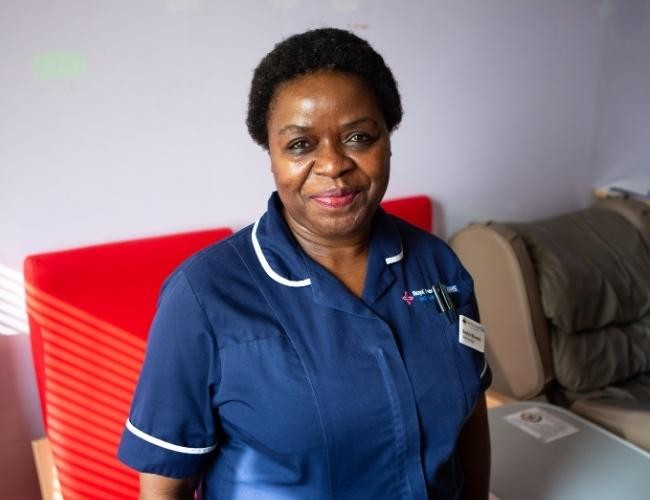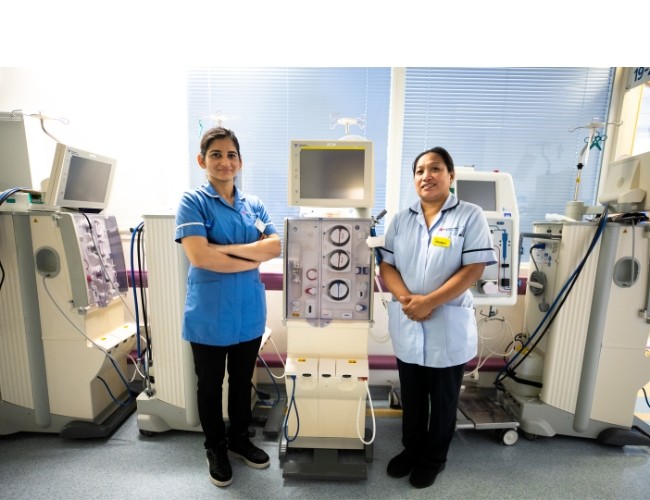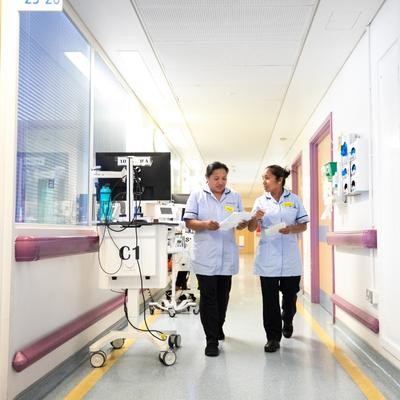Our renal services team at Barnet Hospital and the Royal Free Hospital provides a range of treatments to patients with kidney problems and kidney failure as a result of having kidney disease, such as:
- general nephrology — kidney disease treatment for acute and chronic kidney disease patients, including community clinics
- kidney dialysis services for advanced chronic kidney disease patients to filter the blood from harmful waste
- kidney transplant services — for patients who have experienced kidney failure
- support services, such as clinical psychology and dietary support to help patients cope with the lifestyle changes brought about by kidney disease
General enquiries
Tel: 020 7472 6687
Email: rf-tr.
Barnet Hospital
Dialysis unit: 020 8216 4955 / 020 8216 4956 / 020 8216 4957
Kidney secretaries: 020 8216 4987 or 020 8216 5284
Royal Free Hospital
Kidney secretaries: 020 7794 0500 ext 36028, 33130, 35457, 34138 and 38501
Kidney and Urology Centre outpatient reception: 020 7794 0500 ext 34133
Kidney patient navigator: 020 7794 0500 ext 33323
Kidney transplant patient navigator: 020 7794 0500 ext 33447
Low clearance clinic patient navigator: 020 7794 0500 ext 36229
Peritoneal and home dialysis patient navigator: 020 7794 0500 ext 38783
Kidney vascular success patient navigator: 020 7794 0500 ext 31136
Edgware Community Hospital
Tel: 020 8732 4160
St Pancras Kidney and Diabetes Centre (at St Pancras Hospital)
Tel: 020 3758 2030 ext 82030
Tottenham Hale Kidney Centre
Tel: 020 7830 2820
Referrals to the nephrology team can be made via a GP or hospital doctor. We cannot see patients without an appointment.
Electronic referrals to the nephrology service at the Royal Free Hospital are made by a GP via the Referral Assessment Service (‘RAS’). GPs in Camden, Barnet and Islington should continue to use the EMIS direct referral pathway.
Tertiary referrals from other hospital consultants can be made via rf-tr.
All referrals are assessed, and in many cases rapid advice and guidance is given without patients having to attend an appointment.
If your clinician has asked for you to have a blood test, you can book online using one of the links below. Please book your blood test at the unit where you normally have your kidney care appointments:
- Kidney and Urology Centre: 3rd floor, Royal Free Hospital: Monday, Wednesday and Friday, 9am to 5.20pm. We also offer walk-in clinics on Tuesday and Thursday
- Edgware Community Hospital (zone B): Monday to Friday, 8.30am to 4pm
- St Pancras Kidney and Diabetes Centre (previously known as the Mary Rankin Dialysis Unit): Monday to Friday, 8.30am to 4pm
- Tottenham Hale Kidney Centre: Monday to Friday, 9am to 4pm
For blood tests requested by your GP or other specialties, please book via our main blood test page. This includes if you require a kidney blood test at Barnet Hospital or Chase Farm Hospital.
If you need assistance with booking a blood test, please ask one of our outpatient assistants to help you or speak to your clinical nurse specialist.
You can also call 020 7443 9757 to book an appointment, but the team will only be able to offer you appointments at the Royal Free Hospital (ground floor). The line is open Monday to Friday, 8am to 5pm.
The kidney is a bean-shaped organ about the size of a fist. Most people have two kidneys which are situated just above the waist at the back.
The main function of the kidney is to clean the blood of harmful waste and balance the amount of salt and water in the body. The kidney also makes vitamin D (to keep your bones strong) and helps to make red blood cells.
What happens when the kidneys fail?
Kidney failure can cause waste to build up in the blood and the body may retain fluid.
Patients with kidney failure can feel tired, breathless, have swollen ankles and lose their appetite.
When the kidney function is very low, patients may require dialysis or a transplant to take over the function of their failing kidneys.
Kidney transplants
We are specialists in kidney transplantation, attracting patients from across the country and beyond.
If you have a question, including about types of donors and what to expect if you have a kidney transplant at the Royal Free Hospital, click the button below.

 Translate
Translate



